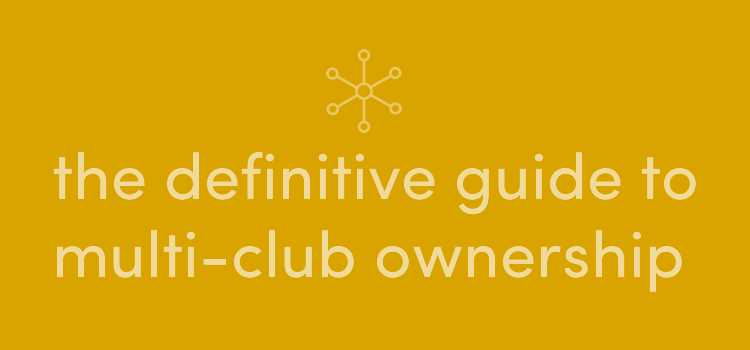The Definitive Guide to Multi-Club Ownership, Episode 5: Red Bull
Episode 1 – Introduction to MCOs + The Pozzo Group (link to episode 1)
Episode 2 – City Football Group (link to episode 2)
Episode 3 – FC Nordsjælland (link to episode 3)
Episode 4 – Atletico Madrid (link to episode 4)
In April 2005, energy drink company Red Bull purchased the Austrian club Austria Salzburg. They immediately rebranded the club as Red Bull Salzburg, renaming their ground to the Red Bull Arena. As expected this did not go down well with a majority of Salzburg supporters. Many fans renounced their support for the club, and one fan group even went as far as setting up a new team with the old name, who went on to achieve back to back promotions in their first four seasons, and are now currently in the third tier of Austrian football, attracting average attendances of over 1000 supporters per game.
Despite the fan opposition, Red Bull Salzburg have flourished under the new ownership, winning seven titles in the eleven seasons that they’ve been in charge, with them finishing second in the other four seasons – and they’re on track for title number 8, leading Austria Wien by fourteen points with just 5 games to go
Red Bull furthered their profile in football a year later with the purchase of New Jersey MetroStars. Once again they immediately rebranded the team to become the New York Red Bulls. Interestingly the New York team haven’t been as dominant as the Austrian team, with two Supporter Shield wins to their name so far – however they have gone on to lose in the playoffs in both of those seasons. However, big name stars such as Thierry Henry and Tim Cahill, alongside the growing popularity of football within the USA, has seen attendances rise by thousands over the last few years.
The latest acquisition is RB Leipzig (formerly SSV Markranstädt) who were purchased in the summer of 2009. When bought, SSV Markranstädt were in the fifth tier of German football and were given the aim of playing Bundesliga football within ten years. RB Leipzig have smashed that target and in just 6 seasons are sitting in 2nd place in the Bundesliga much to the disdain of plenty of German fans who have held protests throughout the clubs rise through the ranks, due to openly flouting the 50+1 ownership rule.
Further to this, Red Bull have also owned two more teams, one in Brazil and one in Ghana (aptly named Red Bull Brasil and Red Bull Ghana). Red Bull Ghana has now ceased to exist, but Red Bull Brasil compete in Serie D. Red Bull Brasil seem to be ran a bit differently to the others, with minimal player movement between clubs (a few players have moved RB Brasil and the rest of the RB network), however the main transfer I want to focus on is that of Bernardo. The versatile Brazilian joined Red Bull Brasil as a 16 year old, before eventually transferring to RB Leipzig in 2016 for a reported £3.4m. Bernardo has since gone on to make 16 appearances for RB Leipzig, including 3 games for them in their debut Bundesliga season. This shows the strength of the MCO model – it cannot cost a lot to run a Serie D Brazilian side, but if they can help produce multi-million pound players every now and again then the clubs essentially pay for themselves.
The Red Bull model focuses highly on youth, with sporting director Ralf Rangnick stating that their transfer strategy focuses on players no older than 23, this strategy combined with the riches that a company like Red Bull can put in means that they are an attractive proposition for young players, with the Red Bull academies being some of the best around – Red Bull Salzburg U19’s recent win of the UEFA Youth League (beating the likes of Barcelona U19s, PSG U19s and Atletico Madrid U19s en route to the final where they bested Benfica U19s) is testament to that fact.
I also think the Red Bull model is set to expand in the future – England is the next obvious step for the Premier League money as Red Bull obviously have the resources available to make that a very real prospect (however they may have trouble with the rebranding!). Asia may also prove to be a potential future target for a Red Bull club, with Japan, South Korea or Australia prime locations. I’m also quite surprised at the closure of Red Bull Ghana back in 2014, as seen with the Right To Dream Academy in Episode 3 of the series, if done right an African academy could be a fantastic hotbed of talent to choose from in the future, however Red Bull obviously had their reasons for abandoning the project, but I wouldn’t overly be surprised if the project was resumed at some point in the future. Red Bull alongside the City Football Group are the 2 MCOs that I’m hedging will be hugely dominant in the future of football.
The success that Red Bull have seen so quickly after investing in clubs will surely make a few other companies sit up and take notice – whilst the Red Bull project has so far seen a significant investment with little in the way of financial returns it obviously pays off in other ways (read: advertising), and a few big money player sales should soon see some financial gains (Naby Keita being one) and I’d fully expect a few other companies (Coca Cola + Pepsi being 2) to also get involved within the next decade or so.
